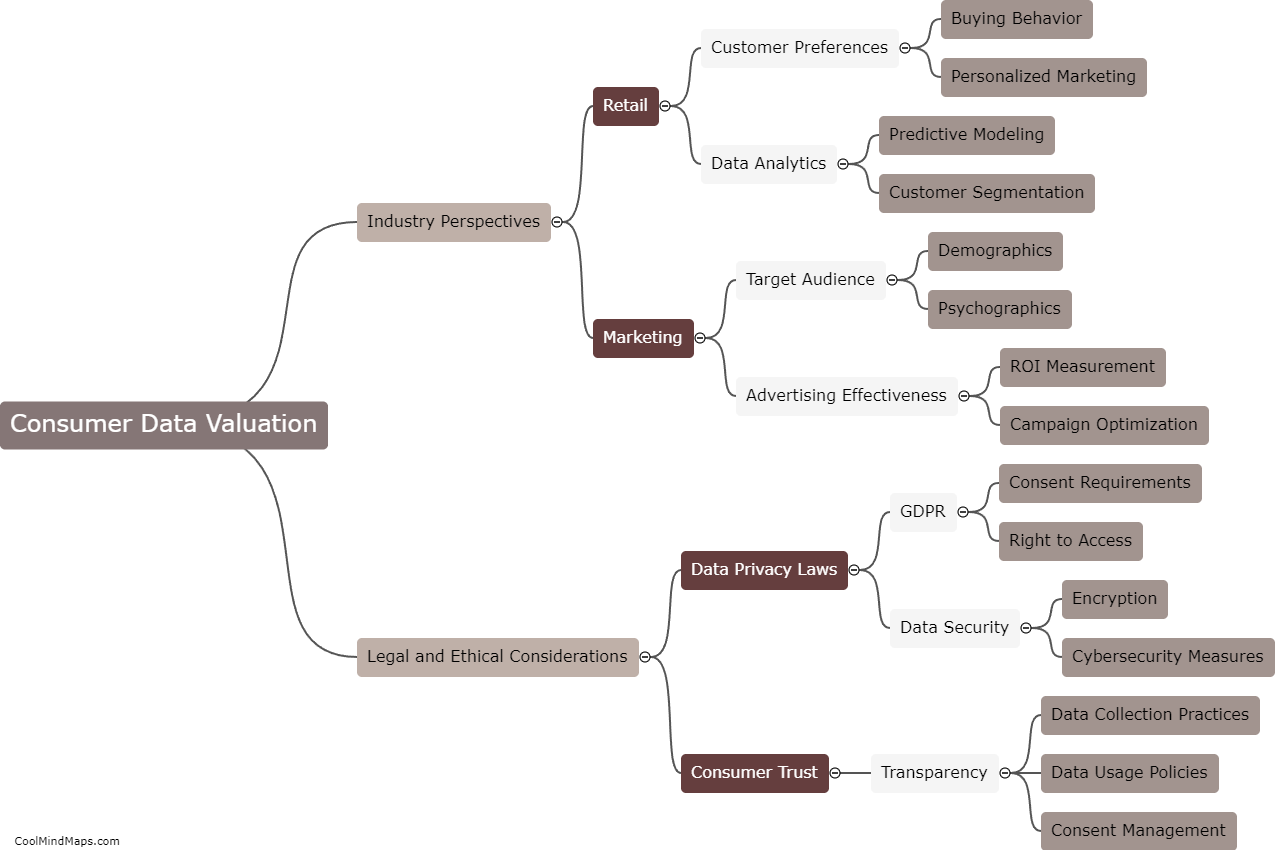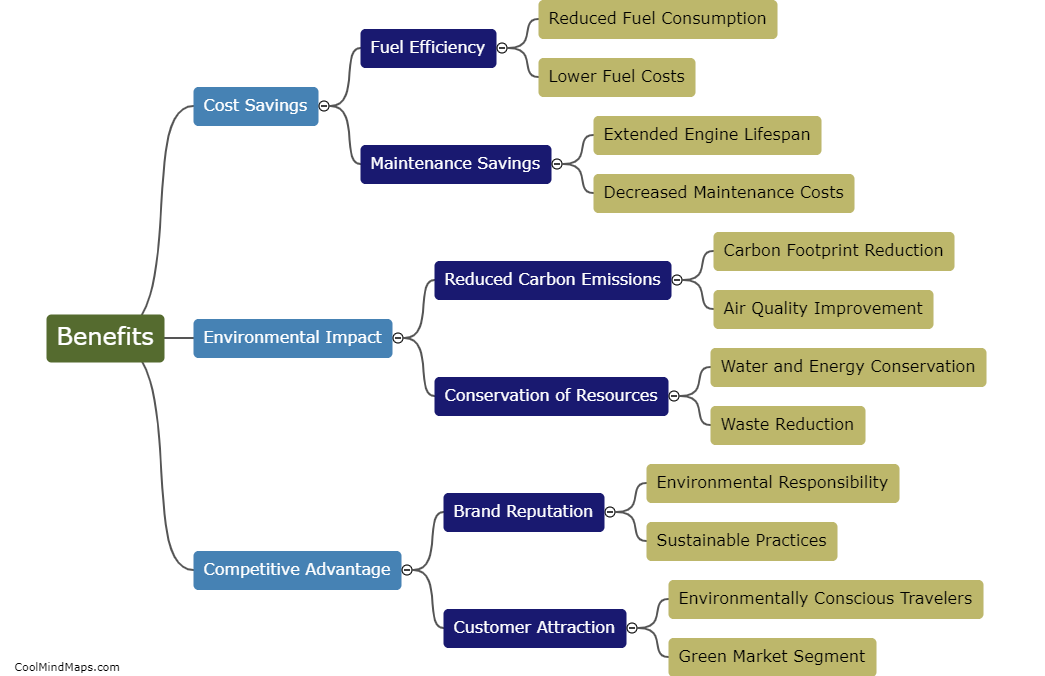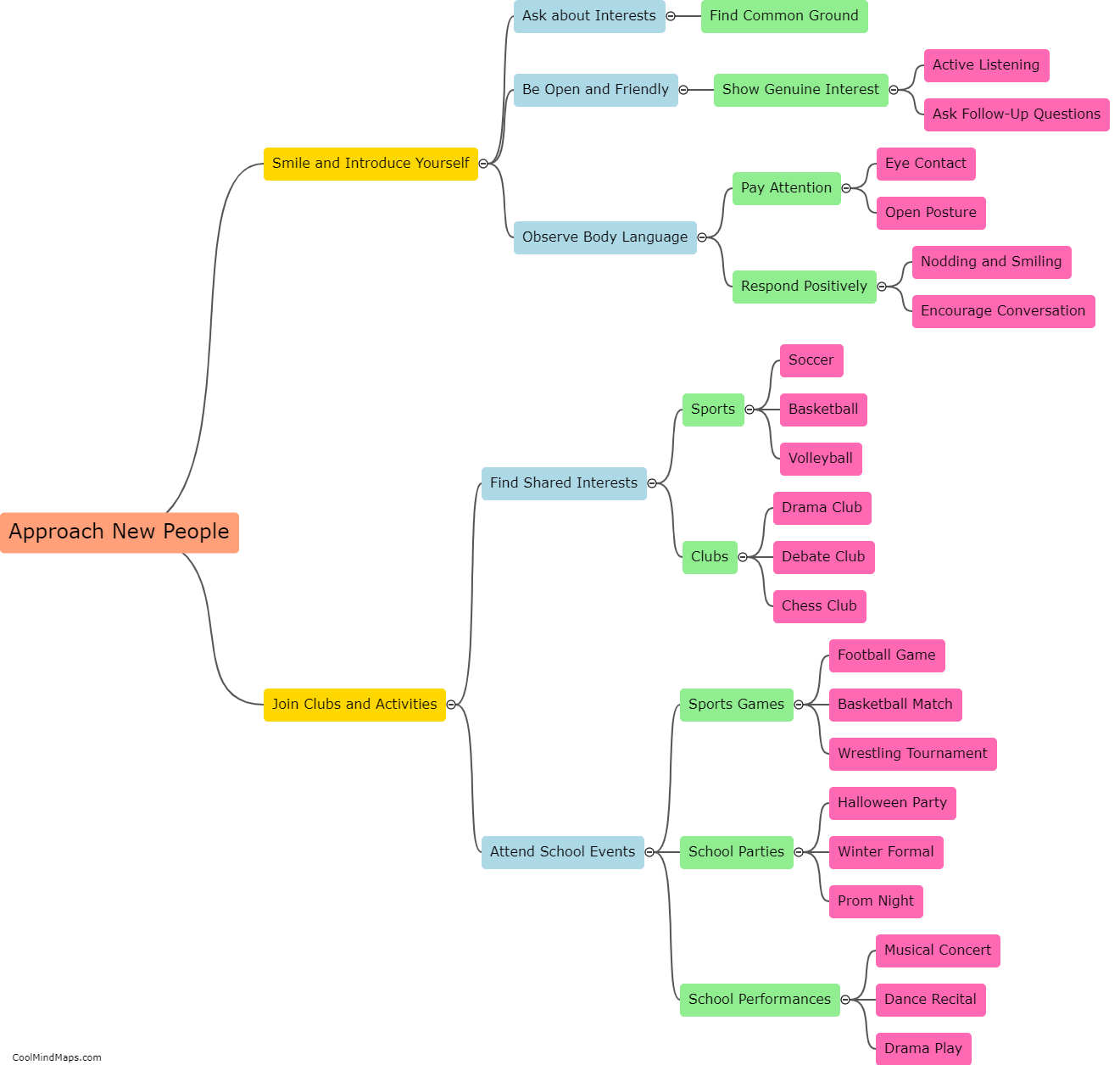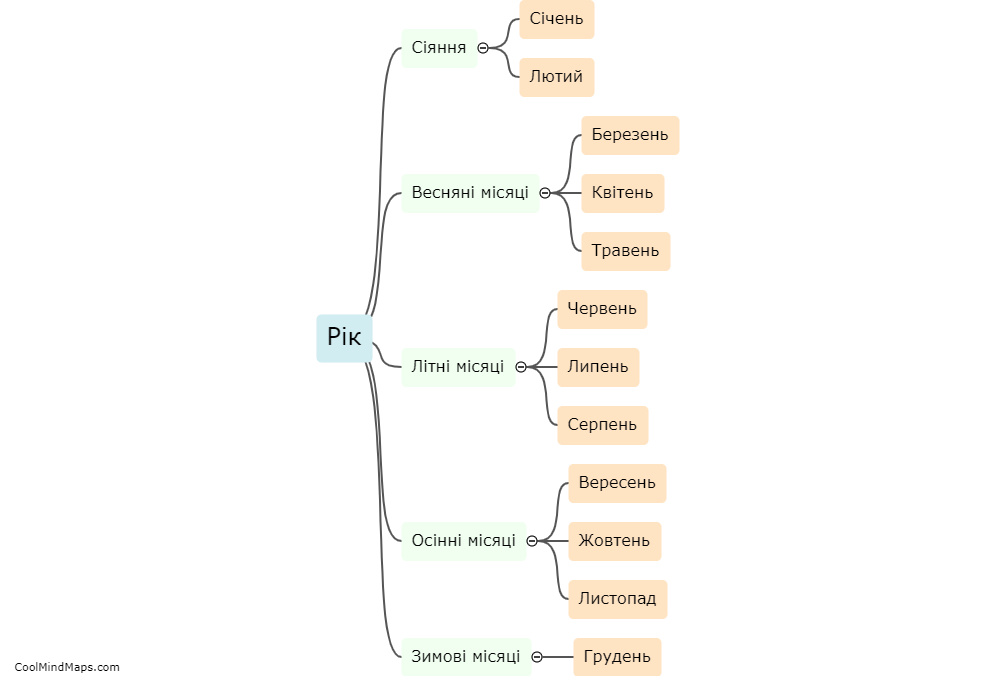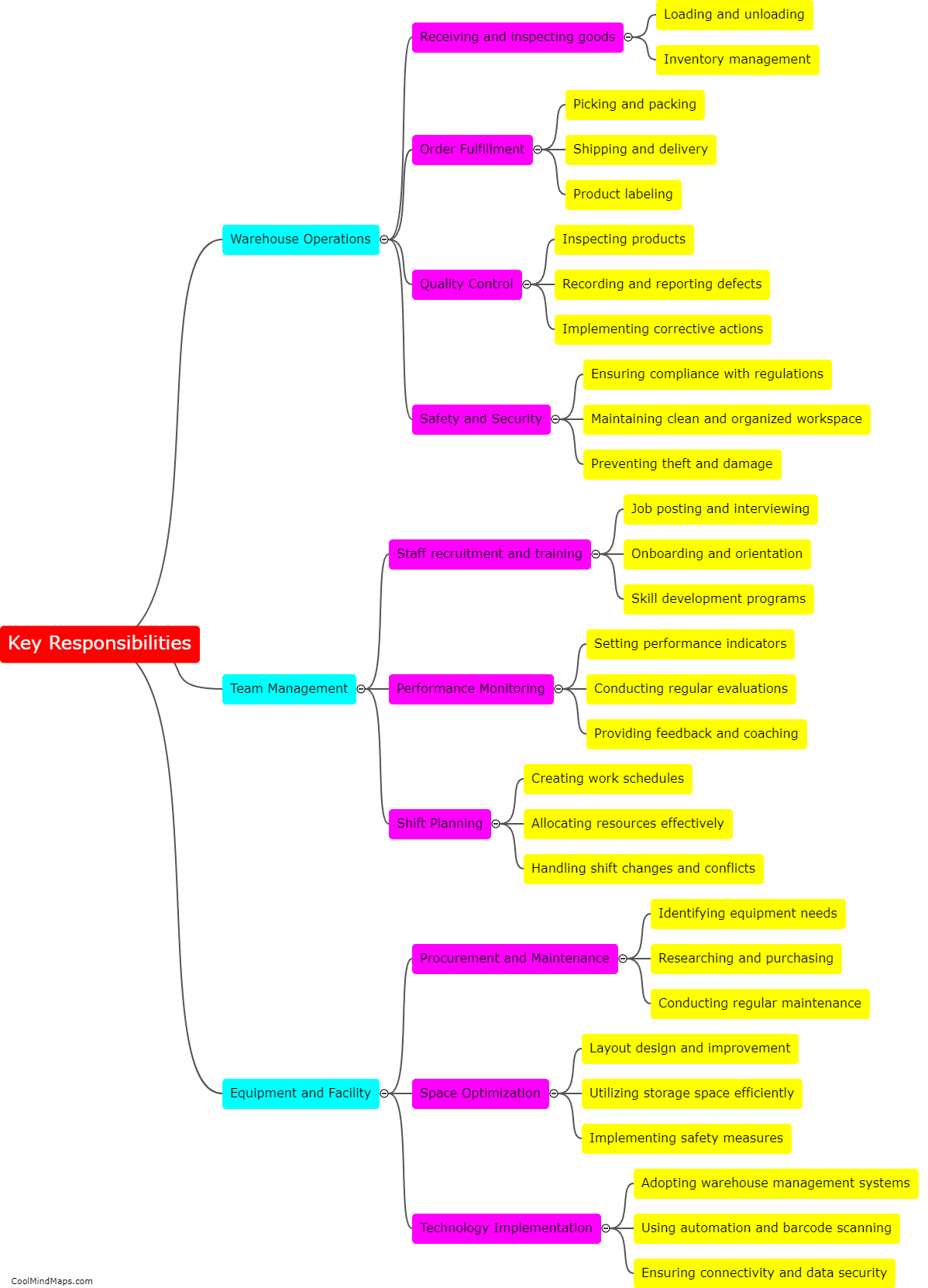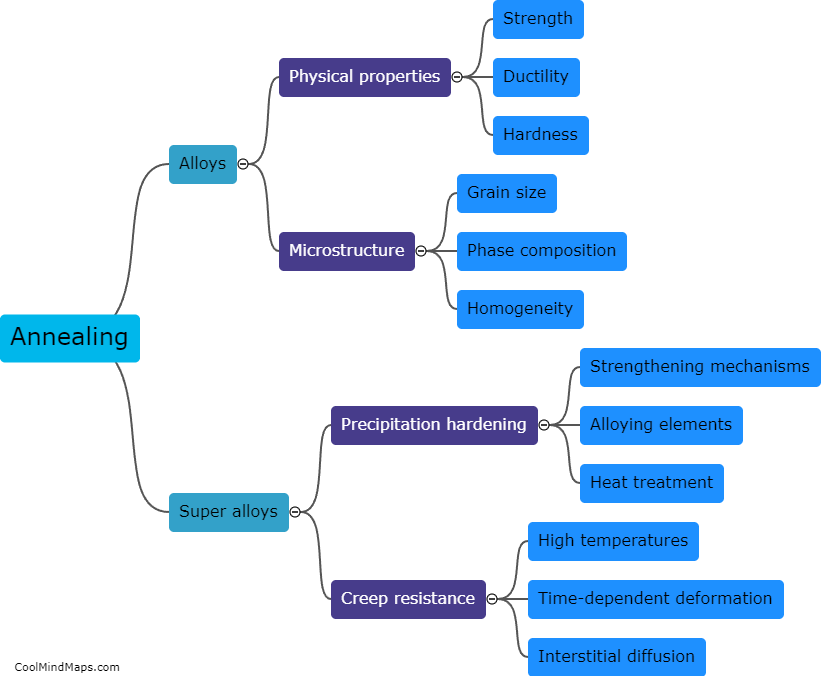What are the key elements for sustainable vegetable production?
Key elements for sustainable vegetable production include efficient water management, soil health and fertility, integrated pest management, and crop rotation. Efficient water management involves using techniques such as drip irrigation and mulching to minimize water usage and reduce the risk of water wastage. Ensuring soil health and fertility through practices like organic matter addition and proper nutrient management helps maintain the long-term productivity of the land. Integrated pest management focuses on preventing and controlling pests using a combination of biological, cultural, and chemical methods, minimizing the reliance on harmful pesticides. Lastly, crop rotation helps break pest and disease cycles, improves soil health, and diversifies farm ecosystems, making vegetable production more sustainable in the long run.
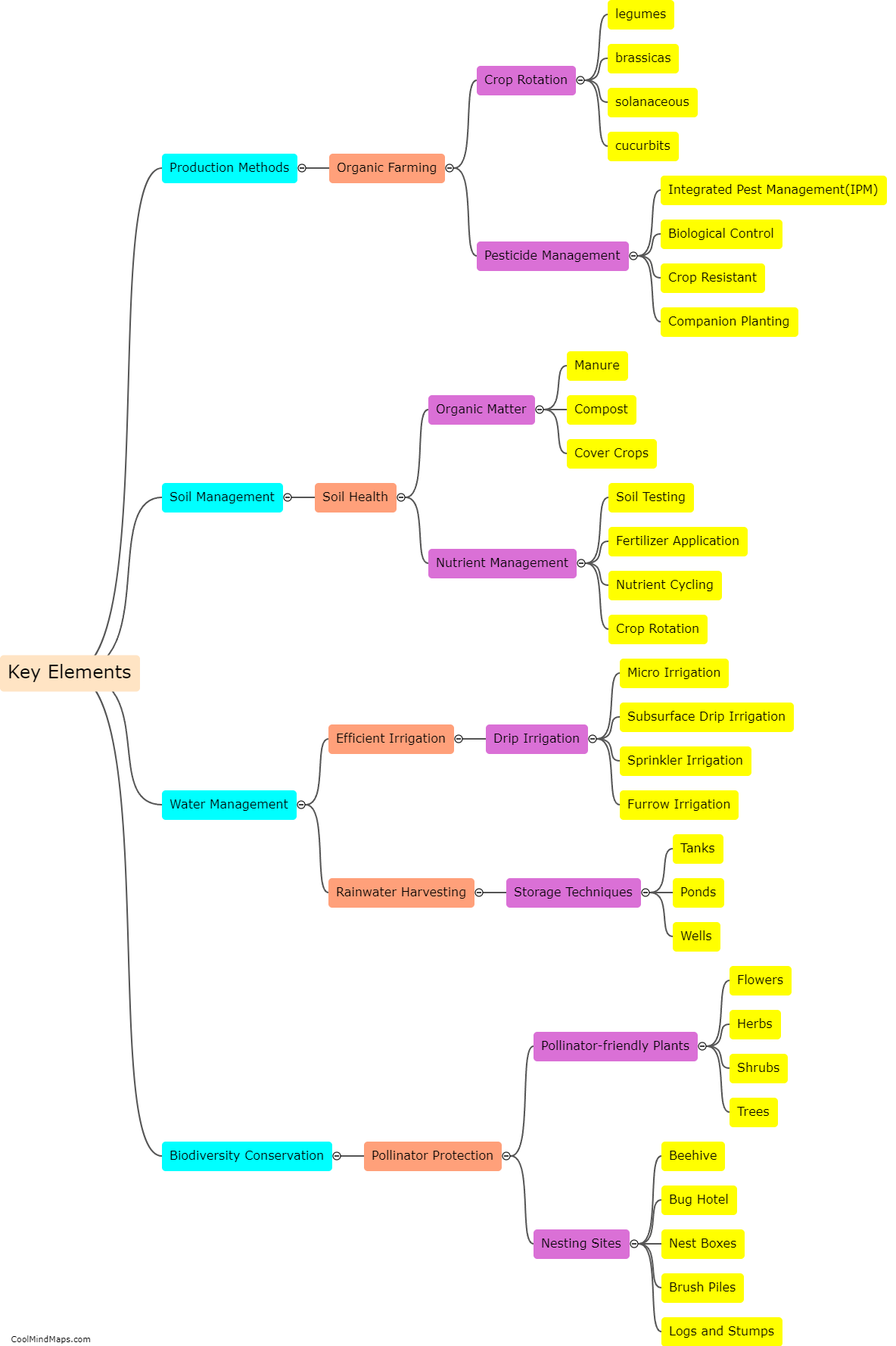
This mind map was published on 16 August 2023 and has been viewed 106 times.


